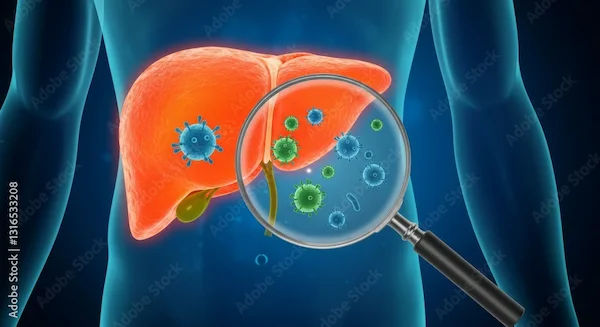Eosinophils: Definition and Normal Range
Learn about eosinophils, their definition, functions, and normal range. Understand how abnormal levels can indicate allergies, infections, or immune-related conditions.

Written by Dr. Md Yusuf Shareef
Reviewed by Dr. Rohinipriyanka Pondugula MBBS
Last updated on 13th Jan, 2026

When you get a blood test, you might notice a term called "eosinophils" in your report. If you're wondering what they are and why they matter, this article will help you understand everything in simple terms.
What Are Eosinophils?
Eosinophils are a type of white blood cell that play a crucial role in your immune system. They help your body fight infections, especially those caused by parasites, and are also involved in allergic reactions and inflammation.
Think of them as your body’s defense soldiers, they rush to areas where there’s an infection or allergic reaction to help control the problem.
Consult a Top Specialist
Normal Range of Eosinophils
In a healthy adult, eosinophils usually make up a small percentage of your total white blood cells. Here’s what’s considered normal:
• Absolute eosinophil count (AEC): 30 to 350 cells per microliter (µL) of blood
• Percentage of total white blood cells: 1% to 6%
If your test results show numbers higher or lower than this range, your doctor may investigate further to determine the cause.
What Does a High Eosinophil Count Mean?
A condition called eosinophilia occurs when eosinophil levels are higher than normal. This can happen due to:
• Allergies (asthma, hay fever, eczema)
• Parasitic infections (like worms)
• Autoimmune diseases (such as lupus or rheumatoid arthritis)
• Certain cancers (like leukemia or lymphoma)
• Skin conditions (such as psoriasis)
If your eosinophil count is high, your doctor may recommend additional tests to find the underlying cause.
What Does a Low Eosinophil Count Mean?
Low eosinophil levels (called eosinopenia) are less common but can occur due to:
• Severe infections (like sepsis)
• Stress or excessive steroid use
• Certain medications (like corticosteroids)
A low count is usually not a major concern unless linked to another medical condition.
How Can You Manage Abnormal Eosinophil Levels?
If your eosinophil levels are outside the normal range, here are some steps you can take:
1. Identify and Treat the Underlying Cause
• If allergies are the issue, antihistamines or allergy shots may help.
• For parasitic infections, antiparasitic medications will be prescribed.
2. Adopt a Healthy Lifestyle
• Eat a balanced diet rich in fruits, vegetables, and lean proteins to support immune health.
• Stay hydrated to help your body function optimally.
• Exercise regularly to boost immunity.
3. Avoid Triggers
• If you have allergies, reduce exposure to dust, pollen, or pet dander.
• Quit smoking, as it can worsen inflammation.
4. Follow Up with Your Doctor
Regular check-ups and blood tests can help monitor your eosinophil levels and ensure they return to normal.
When Should You See a Doctor?
If you experience symptoms like:
• Persistent fatigue
• Unexplained weight loss
• Frequent infections
• Severe allergic reactions
It’s best to consult a doctor for further evaluation.
Book a Consultation with Apollo 24|7
If you’re concerned about your eosinophil levels or need a blood test, you can easily book a consultation or lab test through Apollo 24|7. Their expert doctors can guide you on the next steps and help you maintain optimal health.
Conclusion
Eosinophils are an important part of your immune system, and keeping them within the normal range is essential for good health. If your test results show abnormal levels, don’t panic—work with your doctor to find the cause and take the right steps to manage it.
Consult a Top Specialist
Consult a Top Specialist

Dr. Praveen Kumar Mukka
General Physician/ Internal Medicine Specialist
21 Years • MBBS, MD General Medicine
Hyderabad
Apollo 24|7 Clinic - Telangana, Hyderabad
(100+ Patients)

Dr. Rohinipriyanka Reddy
General Practitioner
9 Years • MBBS
Hyderabad
Apollo 24|7 Clinic, Hyderabad

Dr. Shaik Abdul Kalam
General Practitioner
3 Years • MD (Physician)
Visakhapatnam
Apollo 24|7 Clinic - Andhra Pradesh, Visakhapatnam
(150+ Patients)

Dr. D Bhanu Prakash
General Practitioner
10 Years • MBBS, AFIH, Advanced certificate in critical care medicine, Fellowship in critical care medicine
Hyderabad
Apollo 24|7 Clinic, Hyderabad

Dr. M L Ezhilarasan
General Practitioner
6 Years • MBBS
Visakhapatnam
Apollo 24|7 Clinic - Andhra Pradesh, Visakhapatnam
Consult a Top Specialist

Dr. Praveen Kumar Mukka
General Physician/ Internal Medicine Specialist
21 Years • MBBS, MD General Medicine
Hyderabad
Apollo 24|7 Clinic - Telangana, Hyderabad
(100+ Patients)

Dr. Rohinipriyanka Reddy
General Practitioner
9 Years • MBBS
Hyderabad
Apollo 24|7 Clinic, Hyderabad

Dr. Shaik Abdul Kalam
General Practitioner
3 Years • MD (Physician)
Visakhapatnam
Apollo 24|7 Clinic - Andhra Pradesh, Visakhapatnam
(150+ Patients)

Dr. D Bhanu Prakash
General Practitioner
10 Years • MBBS, AFIH, Advanced certificate in critical care medicine, Fellowship in critical care medicine
Hyderabad
Apollo 24|7 Clinic, Hyderabad

Dr. M L Ezhilarasan
General Practitioner
6 Years • MBBS
Visakhapatnam
Apollo 24|7 Clinic - Andhra Pradesh, Visakhapatnam




